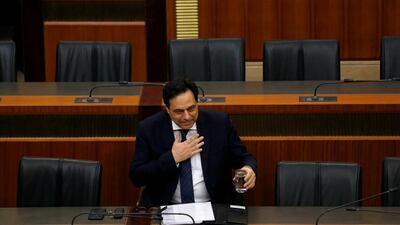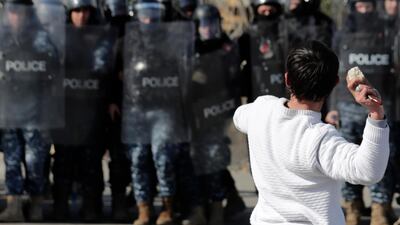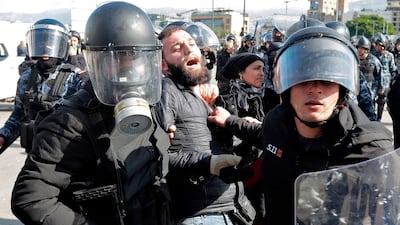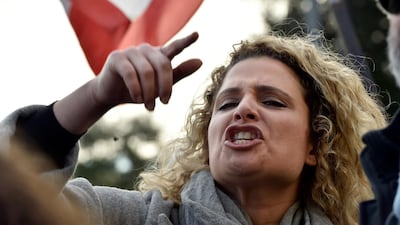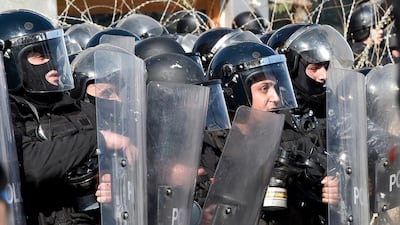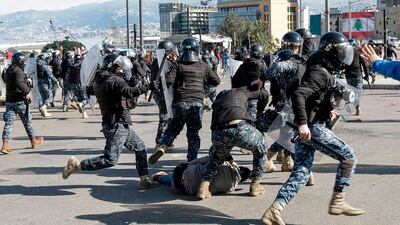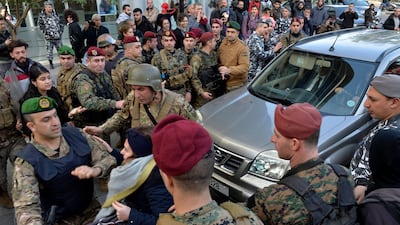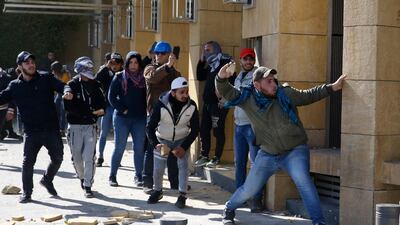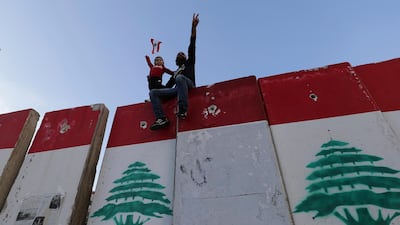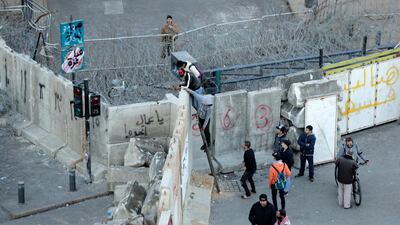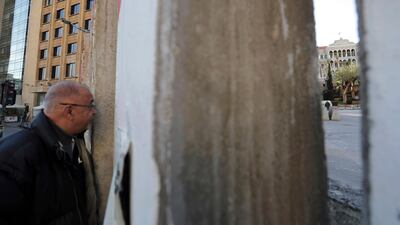Lebanon's new government plans to crack down on tax evasion amid a worsening financial crisis and increasing mistrust of elected officials.
The Cabinet approved a 17-page policy statement, which outlines measures to avoid economic collapse, on Thursday.
Social Affairs and Tourism Minister Ramzi Musharrafieh said that “painful steps” mentioned in previously leaked versions of the policy paper would be applied to “people who do not pay their taxes".
"There are no new taxes on regular people in the country. We talked about tightening up previous expenditures, being more transparent and more accountable," he said.
"It's basically linguistic changes but nothing major as far as the rough messages."
The policy paper was approved with minor adjustments.
The state-run National News Agency reported that President Michel Aoun made a last-minute addition on the issue of returning nearly one million Syrian refugees living in Lebanon to their home country.
Information Minister Manal Abdel Samad said after the meeting that Lebanon would "inevitably regain the confidence" of the international community by working to resolve its problems.
She denied reports that the Cabinet statement was delayed over a dispute regarding Hezbollah's weapons.
The Iran-backed movement was the only political party in Lebanon not to disarm at the end of the 15-year civil war in 1990.
Parliament is expected to meet to discuss the policy paper and approve it next Tuesday.
Called "the government of confronting challenges", the Cabinet was formed on January 21 after former prime minister Saad Hariri resigned in October after mass protests.
Tens of thousands have been out on the streets since early October to demand deep structural change, more transparency and accountability from politicians, who they blame for the worst financial crisis in decades.
The demonstrations were triggered by an attempt to impose a tax on internet phone calls on WhatsApp and other applications, as well as other measures.
Traditional political parties took a step back in the new Cabinet, allowing Prime Minister Hassan Diab to pick little-known figures.
But critics say that little has changed as ministers were approved by the same political parties that drove Lebanon to the brink of economic collapse.
Although politicians have not mentioned this possibility, financial experts have suggested that the government may default on its debt in March when it is due to repay $1.2 billion (Dh4.4bn) in Eurobonds.
Public debt is $89.5bn, 38 per cent of it in foreign currency.
Fiscal law expert Karim Daher told The National that fighting tax evasion was an important step towards stabilising the economy.
It is a measure often touted but rarely enforced by Lebanese politicians in the past, Mr Daher said.
“It’s very easy to say but we need concrete steps,” he said.
Mr Daher said the 2018 budget obliged municipalities to conduct a census of taxpayers, but no results have been communicated so far.
“The most important decision must be political," he said. "Will they broaden the scope of the tax to those who are still protected and backed for political and clientelism purposes?"
Protesters want an end to Lebanon's sectarian power-sharing system, which they said breeds corruption among political parties working in the interests of their sects rather than for the state.
The Cabinet’s policy proposals also said the banking system could be stabilised by recapitalising banks and dealing with a growing number of non-performing loans, although it did not specify how.
A severe liquidity shortage, which started before protests began, has pushed banks to reduce cash withdrawals to a few hundred dollars a month.
The policy paper called on international partners to help Lebanon, despite the country not implementing reforms that were necessary to receive nearly $11bn in soft loans pledged in Paris in April 2018.
Althoguh protests have died down in the past weeks, open defiance against political leaders has remained.
On Wednesday evening, Ziad Aswad, an MP from Mr Aoun's largely Christian Free Patriotic Movement, was for the second night in a row heckled while eating out.
The sight of crowds booing prominent politicians public is now a weekly occurrence. But in recent days, some incidents have taken a distinctly sectarian overtone.
After the incident involving Mr Aswad, FPM supporters assaulted one of the protesters.
A video of the incident widely shared on social media, a group of men aggressively asked a young man whether he was from Tripoli.
When he said he was, they then punched him in the face before saying: "This is Keserwan here, you animal."
Keserwan is a region north of Beirut where the FPM has a strong presence.
Protesters from Tripoli, Lebanon's second biggest city with a majority Sunni population, have been extremely active in demonstrations all over the country.
On Thursday, the FPM condemned who insulted politicians or assaulted protesters.
On the same day, the party's television station, OTV, broadcast images of a vandalised FPM office in Akkar, a region north of Tripoli.
